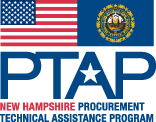The latest round of annual grants from the Northern Borders Regional Commission was announced last month. Totaling $1,150,716, the seven grants were awarded to the Franconia Ski Club and state-owned Cannon Mountain Ski Area; the town of Northumberland; the New Hampshire Department of Transportation; TwinState MakerSpace Inc.; River Valley Community College; the Grafton County Economic Development Council and Plymouth State University.
Each project will help make a difference in its community and the region; a difference that may not have come to fruition were it not for this commission, which gives a boost to northern New Hampshire and three other states. We directed Five Questions this week to Mark Scarano, federal co-chairman of the Northern Border Regional Commission, about the goals of the program and how it helps economic development.
1. What is the Northern Border Regional Commission and how is New Hampshire a part of it?
The Northern Border Regional Commission is a federal-state partnership for economic development in northern New Hampshire, New York, Vermont and Maine. The NBRC provides grants to higher impact economic and community development projects that show promise for job creation and encourage private sector investments. Projects from local governments and non-profits in Carroll, Coos, Grafton, and Sullivan counties are eligible for funding. Match is 50 percent for each county, except for projects in Coos in which applicants have to come up with only 20 percent match. The maximum award is currently $250,000 and grants are decided by me and the collective vote of the governors of Maine, New Hampshire, Vermont and New York.
I work closely with Governor Hassan’s alternate representative to the NBRC, Department of Resources and Economic Development Commissioner Jeff Rose, to review applications and identify the most promising projects for funding. New Hampshire really hit it out of the park during this year’s grant round: It had 20 applications, more than any other state.
2. How has the commission made a difference in rural New Hampshire?
Rural America has certainly taken it on the chin economically and demographically. The NBRC and its sister commissions around the country all emphasize supporting economic development and community initiatives in rural areas. The counties we cover in New Hampshire are some of the state’s most rural; most have populations that have only slightly grown compared to the US average. Of course, Coos County has actually seen a population decline.
Our grants have provided early stage funding for some exciting economic and community development projects. For instance, the Enterprise Center at Plymouth business incubator project supports and encourages new and expanding entrepreneurial companies through the resources of Plymouth State University’s College of Business Administration. Thanks to the NBRC, the project was able to leverage up to $2.3 million in funds to create a 10,000 square foot, high impact facility that serves the dual purpose of eliminating blighted conditions in downtown Plymouth.
NBRC’s funding support was invaluable to expand Northern Community Investment Corp.’s Wireless LINC system, which delivers competitive high speed internet service to businesses and homes across northern New Hampshire. These were placed in location that were underserved by larger corporate providers.
And everyone is impressed with the Town of Littleton’s steadfast volunteers who are developing and promoting their downtown and riverfront areas. Littleton has a strong track record of successfully completing larger economic development projects such as its industrial park. The town’s application provided substantive plans and evidence of overwhelming local support. I have no doubt that these improvements will lead to new investments in that region.
3. The latest round of grants was recently announced. Why were these particular projects selected?
NBRC grants are very flexible and are meant to offer the greatest degree of options for well planned economic and community development projects. While diverse in their activities, all of the 2015 projects we approved are projected to have strong regional economic impacts. For example, River Valley Community College will be using NBRC funds to renovate a former educational facility in downtown Lebanon. Promoters of this project include Upper Valley health care operators and regional manufacturers seeking customized training for their employees. The Town of Northumberland will use NBRC funds to expand water and wastewater lines to the former Groveton mill site, now owned by a private investor. Should the park attract the amount of development as projected, all of Coos County will benefit from the resulting jobs and investments.
4. What kind of agencies and organizations should plan to apply for a Northern Borders Commission grant next year?
Eligible applicants include state and local governments, as well as non-profit organizations. If anyone has a plan and vision for transforming his or her local and regional economy, please call me at (202) 590-6650 or our state partners the New Hampshire Department of Resources and Economic Development. Chris Way at DRED is familiar with our programs and can be reached at (603) 271-2591.
5. Now that you’ve been federal co-chairman of the commission for about six months, what do you see as the potential for the Northern Borders region?
With visionary leadership, high aspirations, and a positive attitude, anything is possible for America’s Northern Border region. I’ve had the honor to visit communities throughout the four state region and discovered plenty of these qualities. As the NBRC federal-state partnership matures, we’ll continue to fund well-planned and transformative projects from these types of leaders and organizations.











